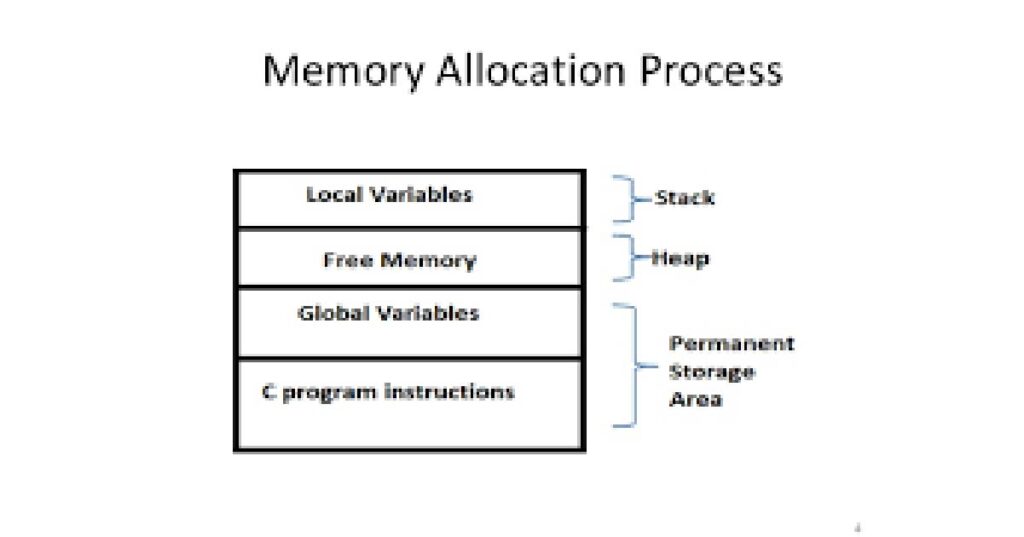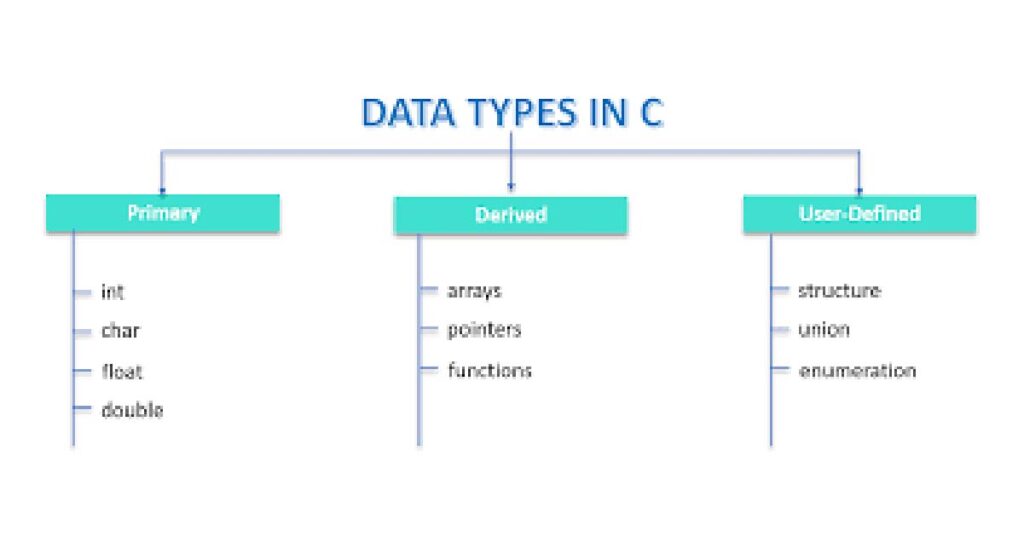Introduction
Preparing for C programming interviews with relevant c programming interview questions is a must for anyone looking to join the everchanging technological landscape. Software developers and programmers over all walks of life are becoming proficient in this language as it continues to remain an important aspect of IT. The demand for skilled C programmers have not decreased but it is rather increasing, hence the need to adequately prepare yourself before going for any interviews. c programming interview questions and answers helps developers and programmers especially the newer ones to have a feel and insight into what employers are looking for and also how they can position themselves for the right position. That is why this article has put together 20 of the top c programming interview questions to equip you with the needed knowledge and confidence while fortifying your understanding of C programming in preparation for the challenges and opportunities that lie ahead in 2024.
Preparing for a C Programming Interview
C programming interviews typically involve a technical assessment to evaluate coding skills, followed by behavioral questions to assess soft skills, teamwork, problem-solving approach, and real-world scenarios. Writing code on a whiteboard, utilizing a text editor, or participating in an online coding environment could be part of the interview format.
C programming interview questions may center about past projects, experiences, and specific technologies or frameworks. Problem-solving scenarios may involve applying programming concepts to solve challenges. To learn and practice C concepts, go over the essentials again, examine data structures and algorithms, handle file operations, manage memory, become proficient with pointers and arrays, and deal with errors.
Practice code debugging, solve coding challenges on platforms like LeetCode, HackerRank, and Codewars, and contribute to open-source projects. Practical experience and coding practice are crucial for success in interviews. Building a portfolio, improving problem-solving skills, adapting to interview settings, demonstrating consistency, and staying updated with industry best practices are essential.
Basic C Programming Interview Questions
Question 1: Explanation of data types in C.

The first of our top 20 c programming interview questions is this. In C programming, data types are crucial for defining the type of data a variable can hold and the operations that can be performed on it. Int, char, float, double, short, long, signed, unsigned, _Bool, _Complex, and void are the common data types. Unsigned indicates only positive values or zero, signed indicates both positive and negative values, _Bool represents boolean values, _Complex represents complex numbers, and void represents an empty or incomplete data type. Int represents whole numbers without fractional parts, char represents individual characters, float represents floating-point numbers, double provides higher precision, short represents smaller integer values, and long represents larger numbers. Selecting the right data type reduces overflow or loss of precision in calculations and aids in effective memory utilization based on the range of values and required precision.
Question 2: Discuss the use of pointers in C.
This is one of the basic c programming interview questions you may be asked. In C, pointers serve as visual cues as to where specific data is located in memory. Rather than actual values, they hold memory addresses. This increases the flexibility and efficiency of operations by enabling us to work directly with memory. Pointers are useful for a variety of tasks, including efficiently managing arrays, passing data by reference to functions, and allocating dynamic memory. To avoid common pitfalls like memory leaks or accessing invalid memory locations, however, using pointers requires caution. For tasks requiring precise control over memory, like embedded systems development and systems programming, mastering pointers is essential.
Question 3: Describe the process of memory allocation in C.

The third on our c programming interview questions is this frequently asked question. One of the most important aspects of writing reliable and effective programs in C is memory allocation. Compile-time memory allocation and run-time memory allocation are the two primary forms. Local variables inside functions use static memory allocation, whereas dynamic data structures use dynamic memory allocation. The stack, a section of memory under the control of the program's runtime environment, is where static memory allocation takes place. Static and global variables are initialized at program startup and remain constant during program operation. Allocating dynamic memory takes place on the heap, an area that the program manages during execution. It allows for flexible memory management and is crucial for dealing with unknown or changing data structures. Proper memory management, including deallocating when no longer needed, is essential to prevent memory leaks. Error handling is also important to avoid dereferencing a null pointer.
Question 4: What are macros, and how are they used?
c programming interview questions on marcos are usually part of the first part of interviews. Macros in C programming are symbolic names that define reusable code or constants. Prior to compilation, the preprocessor processes them, enabling parameterized code generation and conditional compilation. Typically, the #define preprocessor directive is used to define macros. All you have to do to use them is write their name where it is required. Because they can take parameters, parameterized macros are more flexible. Because they enable specific code segments to be included or excluded based on a macro's value, macros are frequently used for conditional compilation in programming. Instructions for processing the code prior to compilation are provided by preprocessor directives, which begin with the # symbol. Nevertheless, macros should be used carefully to maintain code readability and maintainability because they can occasionally result in difficult-to-read or debug code.
Question 5: Explain the concept of a structure in C.
A structure in C programming is a user-defined data type that enables the representation of more complex data entities in a program by combining variables of various types under one name. Use the struct keyword, a structure's name, and a list of variables (members) to define a structure. The dot. operator can be used to create and retrieve structure variables, and structures can be members of other structures to form intricate data hierarchies. Functions can receive structures either directly or via a pointer to the structure. To store multiple instances of the same type of data, arrays of structures can be made. The creation of complex data types that represent real-world entities, the organization and readability of code, and the ease with which multiple pieces of data can be passed to functions without the need for separate function arguments are all benefits of structures.
Intermediate C Programming Challenges
Question 6: How do you debug a C program?
You should expect c programming interview questions such as this. Debugging a C program involves identifying and correcting errors that prevent it from executing correctly. Using printf statements, interactive debugging tools, GDB and LLDB, compiling with debug information, analyzing static code, verifying return values and error codes, splitting and conquering, examining error messages and logs, and utilizing memory debugging tools are examples of common techniques. Patience and a systematic approach are key, and using version control systems like Git can help track changes in code.
Question 7: What are the datatypes supported in C?

- basic datatypes
- derived datatypes
- enumerated datatypes
- void datatypes
Question 8: Discuss the difference between iteration and recursion with examples.
Two essential problem-solving techniques in programming are iteration and recursion. Iteration depends on an explicit control structure and uses loops to run code until a predetermined condition is met. Because it has a termination condition and a fixed set of variables, it usually uses less memory. Recursion, on the other hand, divides an issue into smaller subproblems and keeps calling itself with changed parameters until it reaches the base case. The function call stack, which generates a new activation record with local variables and return addresses, is the reason for its increased memory usage. For straightforward, repetitive tasks, iteration is frequently more intuitive, but for problems that can be broken down into smaller subproblems, recursion can produce elegant, succinct solutions. Depending on the particular problem at hand, performance factors, and coding preferences, iteration or recursion may be chosen. For c programming interview questions like this shedding much light on the topic is welcomed.
Question 9: Explain file handling in C.
File handling in C involves opening, closing, reading, writing, creating, and modifying files. For file operations, the stdio.h library offers macros and functions. The primary actions involve opening and closing files, handling errors, appending to files, reading from and writing to files, verifying that a file is finished, and carrying out binary file operations. In order to avoid memory leaks and gracefully handle scenarios in which file operations may go wrong, it is essential to handle files carefully.
Question 10: What are command-line arguments, and why are they used?
Command-line arguments are values provided to a program when executed through the command line or terminal, allowing users to pass information at runtime without modifying the source code. This is known as a command-line argument. Customization, data input, control flow, automation, batch processing, testing and debugging, tool integration, security and privacy, and efficiency all depend on them. When calling a program from the command line, command-line arguments are usually specified after the program name. They are useful for applications where different configurations or settings are required for different runs, automating tasks and scripting, enabling batch processing, providing specific input or configuration parameters for testing, facilitating integration with other tools, and ensuring security and privacy.
Advanced C Programming Concepts
Question 11: Describe the use of linked lists over arrays.
This acts as a curtain raiser for our advanced c programming interview questions. Programming's core data structures are linked lists and arrays, each with unique benefits. Linked lists provide dynamic size, effective insertion and deletion, dynamic memory management, no pre-allocation of memory, and eliminate the requirement for a continuous block of memory. They are also easier to implement for some algorithms and perform better for certain operations. However, they can be less memory efficient and slower for accessing elements.
Question 12: Explain the significance of modularity in C.
C programming interview questions on modularity are very common. Modularity is a key principle in software engineering, breaking down a program into manageable, independent modules. It enhances code organization, reusability, maintainability, and collaborative development. Because modular code is reusable, it can be easily maintained, has quicker development cycles, is easier to read, has better debugging and testing capabilities, is more scalable, and is more abstract. It also simplifies debugging in large programs, reuses standard libraries, and promotes long-term maintenance and adaptability to changing technology. Overall, modularity contributes to the efficiency and longevity of software projects .
Question 13: What are some of the basic datatypes supported in C?
- Char
- Short
- Int
- Float
- Double
- unsigned char
- long double
- unsigned short
Question 14: Discuss cross-platform development considerations in C.
Cross-platform development in C involves writing code that can run on different operating systems and hardware platforms without modification. Standard C libraries, preprocessor directives, handling endianness, handling file path handling, avoiding hardcoding system dependencies, using compiler flags for portability, testing across platforms, using cross-platform libraries, utilizing version control and continuous integration tools, properly documenting platform-specific code, and asking the developer community for guidance and solutions are some examples of best practices.
Question 15: Explain the use of volatile and register keywords.
The volatile and register keywords in C provide additional information to the compiler about how certain variables should be treated. A variable is said to be volatile if it has the potential to be suddenly changed by outside sources, like multi-threaded programs or hardware registers. Register recommends storing a variable in a processor register for quicker access; however, the compiler and context will determine how useful this is.
C Programming Best Practices
Question 16: What are some common best practices for writing efficient C code?
Efficient C code is crucial for optimal performance and resource utilization. Using Const and inline variables, optimizing loops, minimizing memory usage, avoiding global variables, minimizing function calls, decreasing conditional branching, optimizing memory access patterns, profiling and benchmarking, avoiding magic numbers, minimizing I/O operations, selecting the appropriate algorithm, utilizing compiler optimizations, avoiding excessive recursion, and maintaining clean, readable code are examples of common best practices. Code optimization ought to be done carefully and given precedence over micro-optimizations.
Question 17: How do you ensure your C code is secure from common vulnerabilities?
To ensure the security of your C code, follow best practices and defensive programming techniques. These include input validation, avoiding buffer overflows, hardcoding sensitive information, using safe string handling functions, sanitizing user-generated content, proper memory management, limiting privileges and access, secure file operations, implementing access controls, avoiding integer overflows, using cryptographic libraries, regularly updating dependencies, conducting security audits and code reviews, staying informed about security best practices, and performing security testing.
Question 18: Discuss the role of code reviews in C programming.
Code reviews are essential in C programming for ensuring the quality, maintainability, and security of code. They detect bugs, enforce coding standards, and promote knowledge sharing. They help identify performance improvements, security vulnerabilities, reduce technical debt, improve code readability, validate requirements and design, foster collaboration, build trust, and ensure codebase integrity. Regular code reviews contribute to higher-quality software that meets requirements and exceeds user expectations, ensuring a more efficient and secure development process.
Question 19: Explain the importance of documentation in C.
For code comprehension, maintainability, updates, onboarding new developers, compliance, debugging, troubleshooting, preventing knowledge loss, API and interface documentation, design justification, code reviews, encouraging code reuse, error handling, and project knowledge transfer, C programming documentation is essential. It provides context for developers, facilitates maintenance and updates, aids in onboarding new developers, and ensures adherence to regulatory requirements. It also aids in debugging and troubleshooting, prevents knowledge loss, and facilitates knowledge transfer within a team.
Question 20: What tools do you recommend for C code testing and why?
This question rounds up our list of c programming interview questions. There are a number of efficient tools I will recommend for C code testing. Several well-liked choices include Unity, Check, Ceedling, cppcheck, Clang Static Analyzer, PVS-Studio, Valgrind, AddressSanitizer, and Electric Fence. Additional tools are Jenkins, LCOV, AFL, and gcov (with GCC)**. Unit testing, static code analysis, dynamic analysis, memory dummying, coverage analysis, fuzz testing, and continuous integration platforms like Jenkins and Travis CI are just a few of the tools that are used in the software development lifecycle.
Navigating C Programming Interview Scenarios
Behavioral questions in C programming interviews assess soft skills, teamwork, problem-solving approach, and ability to handle real-world scenarios. When answering behavioral questions, be ready with examples from your experience, apply the STAR method, emphasize experiences that are relevant, show flexibility and learning, exhibit cooperation and communication, and provide instances of your creative thinking and problem-solving.
Strategies for problem-solving questions include understanding the problem, asking questions, planning and pseudocoding, breaking down complex problems, using appropriate data structures and algorithms, testing your solution, optimizing if necessary, and considering time and space complexity.
Effectively communicating your thought process is crucial in a programming interview, including explaining your approach, using comments, talking through your thought process, discussing assumptions and trade-offs, being open to feedback, and remaining calm and confident.You can improve your chances of succeeding in C programming interviews by answering behavioral questions, using efficient problem-solving techniques, and clearly articulating your thought process.
Conclusion
As we come to the end of our exploration of the top 20 C programming interview questions and answers for 2024, it is clear that anyone hoping to succeed in C programming roles needs to have a firm understanding of these ideas. Equipped with this understanding, you can confidently approach interviews, knowing that you are ready to take on a wide range of technical challenges. Recall that the secret to mastering any programming language, including C, is practice and never-ending learning. Thus, seize the chances that are ahead of you and make sure that you are proficient in C programming during every interview.



